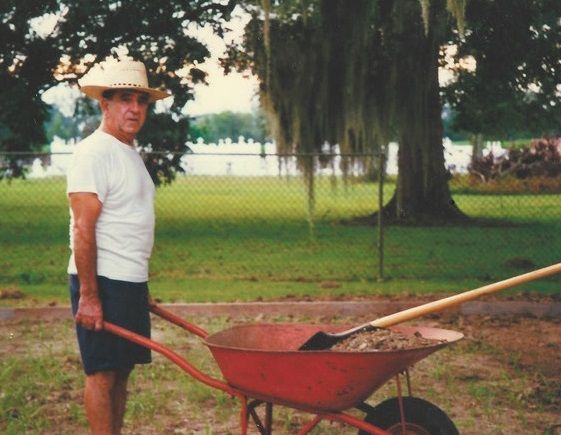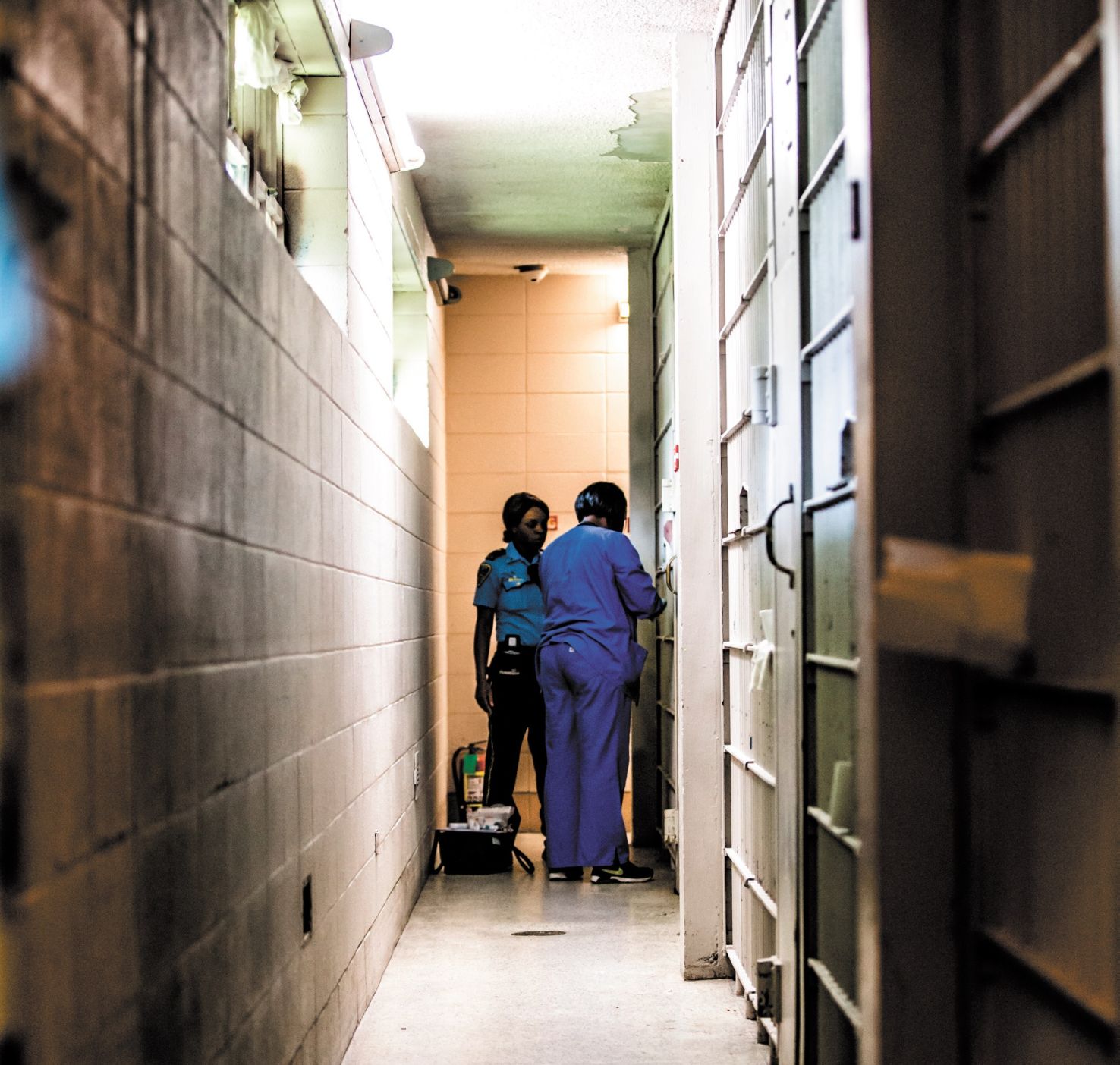
Handyman’s handyman loved spending time with family
August 19, 2015
Bourg, Chauvin to be better protected
August 19, 2015A diverse sea of humanity grew from a trickle to a flood Thursday outside State District Judge Johnny Walker’s court room, some with their traffic tickets in hand, others with hands in their pockets.
A few in the overflow crowd said they had no money for their fines but came anyway, and held onto hope that they wouldn’t leave the cramped courtroom in handcuffs.
They needn’t have worried.
“If you don’t have the money to pay your fine tell us and we will fix another day in the future when you can come to court,” Walker said, after taking his place on the bench.
That having been said, Walker began moving the traffic docket, along, setting dates and taking pleas.
Many local judges conduct court in much the same way as Walker. But the practices from courtroom to courtroom, as well as from jurisdiction to jurisdiction, vary throughout the bayou region, as well as the state. That’s why civil liberties advocates are pressing for courts to adopt uniform standards for how judges work with people who cannot afford to pay fines and court costs. Recommendations for how courts can keep local jails from becoming debtor prisons are contained in a report issued last month by the American Civil Liberties Union of Louisiana, drawn from rulings already made by the U.S. Supreme Court and the 5th Circuit Court of Appeals.
Walker’s court comes close to the ideal, if informally. As he had during the misdemeanor segment of court that had droned on from 9 a.m. until 3:30 p.m., the judge questioned those who lacked resources but would be assessed, in many cases because of probation requirements on their misdemeanors.
“Are you working?”
“How many children do you have?”
“How much time do you need to pay?”
Terrebonne Parish’s five district judges take turns holding traffic court as well as hearing misdemeanors, sharing the load division to division.
The parish court processes upward of 18,000 traffic cases per year. That’s not counting those cases generated by Houma City Police, which end up in City Court.
Tempering justice with pragmatism and mercy, Walker’s actions answered a few key questions raised in a report from the American Civil Liberties Union of Louisiana, which alleges that courts throughout the state flout a legal requirement that people who cannot afford fines be given options, so that parish jails are not turned into debtor prisons, holding people whose sole crime is inability to pay fines and costs.
“At least one judge seems to get it,” said ACLU Executive Director Marjorie Esman, when told of Walker’s apparent routine.
Court personnel say other Terrebonne judges seem to as well, and other evidence points in that direction.
Judge David Arceneaux was observed Friday querying a woman, who had a spotty history of court appearances in regard to a first-offense DWI that did not include property damage or injury.
After questioning the woman and learning that she tends to the sick for very low wages, Arceneaux set a December date for her return, communicating his expectation that by then she would have fines and costs gathered and could meet her obligation.
“Everybody has a different experience but, by and large, I believe the judges consider a person’s ability to pay,” said defense attorney Gregg Graffagnino, when asked about his observations in the Terrebonne courts. “I have seen where a client comes in making a good faith effort to pay something even though it is not the amount they need to pay, and the judges extend their probation.”
The ACLU report contains cautions about such extensions of probation, however, noting that continued time on probation means a continued potential for violation, even due to a traffic ticket, and the potential for even more fines and penalties, ultimately leading to a potential for jail time.
To ensure even-handed treatment in minor cases and keep working people whose jobs could be at risk from jail, the ACLU is recommending procedures closer to what Walker practices, what amounts to a hearing on the question of whether a person can pay, and the use of alternatives like community service if they cannot do so.
Data from Terrebonne Parish was insufficient for the ACLU to draw conclusions about practices there.
But there is evidence of more discretionary decision-making than the civil liberties advocates would like to see.
“There are issues with collections of fines and all of the divisions have gotten pressure when they give a lot of time to pay,” said Assistant District Attorney Chris Erny, who works in Terrebonne’s Division E, where Judge Randy Bethancourt presides. “Sometimes the judge will ask if they are employed and, if they are working and providing for their families, he will tend to be more lenient (than) if it is someone who is not working and they are not being a productive member of society.”
When defendants are ordered to pay they are brought to the Sheriff’s Office’s bonds and fines department, on the first floor of the courthouse annex.
“It is very seldom they will jail them, the judge, if they don’t have the money, will give an alternative to a fine,” Sheriff Jerry Larpenter said. “The judge can order it and sometimes they do go to jail.”
In Lafourche Parish judges said there are no hard and fast rules.
“Each judge runs their own show, there is no judicial administrator here,” said State District Judge Hugh “Buddy” Larose, who will discuss financial issues with defendants if he has a concern.
“If you have a $50 fine I am not going to give you a year to pay,” Larose said. “But we try to take a practical approach. Anyone who has a court date needs to abide by the order of that court and in doing so you give a lot of agencies including the judge an opportunity to work with you. When you refuse to appear a warrant is going to be issued for your arrest.”
How warrants are dealt with can have a particularly hard impact depending on the jurisdiction.
Golden Meadow Magistrate Bryce Autin routinely works with people who can’t afford to pay their fines right away, although he doesn’t have a formal hearing to determine financial status.
“I have been doing this for three years and never had a hearing on whether they had indigent status, but I can also say however long I have been there we have always been able to work with them to pay the fine,” Autin said. “We have had a good number of people that don’t show up and the first time they do show up is in handcuffs.”
A pickup in some other jurisdiction on a warrant Autin has issued can have severe consequences. Golden Meadow court is only held once per month. Someone could have a contempt warrant from Golden Meadow, get stopped for a minor violation somewhere else, and end up jailed for as long as 29 days until they are brought before him.
Autin pro-rates what is owed by a charge of $48 for each day spent in jail. But by then the fine is much higher, and would likely include a fine for contempt.
ACLU of Louisiana Executive Director Marjorie Esman says that scenario – and others that result from lack of uniformity – can have devastating results and must be addressed.
“There are several ways this can play out. You don’t have a job and the standard fine for a misdemeanor is $500,” she explained. “For some people, that’s a night on the town but for others it’s more than a week’s pay. Someone commits to $50 per month and makes some payments. Then their car breaks down and they have to get it fixed because they can’t go to work without the car. A warrant is issued for missing a payment. That’s why the hearing should be held to determine what the person can afford, scale the fine to what is proportional or offer community service.”
Of all local courts checked, Houma City Court is the one that has a system closest to the ACLU recommendations.
Court Administrator Doug Holloway said Judge Matt Hagen refers defendants to the collections department, which has a form they can fill out if unable to pay.
“They will set them up to pay by such and such a date, they will sit down with them and work out a payment plan. If they are destitute, then the judge can impose community service work,” Holloway said, cautioning that payment plans are dependent not on desire but need. “There is a difference between not having the money for a fine and using it to get your nails done.”















